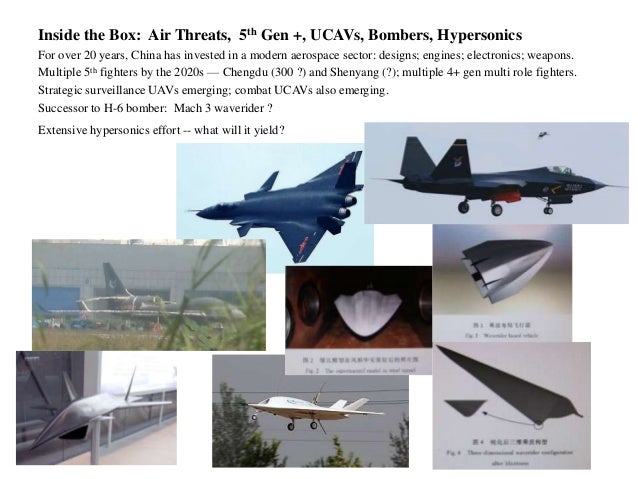The China Factor: How It's Affecting Luxury Car Brands Like BMW And Porsche

Table of Contents
The Rise of Chinese Consumers as Luxury Car Buyers
The growth of China's affluent population is a primary driver of the China factor's influence. Their increasing demand for luxury vehicles is transforming the automotive landscape.
Shifting Demographics and Purchasing Power
China's rising disposable incomes have fueled a significant increase in luxury car purchases. This trend is further amplified by the spending habits of a younger generation, more digitally connected and brand-conscious than ever before.
- Rising Disposable Incomes: The expanding middle class possesses significant purchasing power, driving demand for premium vehicles.
- Younger Generation's Spending Habits: Millennials and Gen Z in China are major luxury consumers, prioritizing status symbols and unique experiences.
- Brand Preference: While global brands remain popular, Chinese consumers show distinct preferences for specific models and features. For example, SUVs and electric vehicles are particularly sought after.
Statistics highlight this dramatic growth: Luxury car sales in China have consistently outpaced global averages for several years, with projections indicating continued strong growth in the coming decade. This phenomenal rise underscores the importance of the China market for global luxury brands.
Unique Consumer Preferences and Brand Loyalty
Chinese luxury car buyers exhibit unique preferences that differ significantly from those in Western markets. Understanding these nuances is key to success in the region.
- Emphasis on Brand Prestige: Luxury car ownership in China often signifies social status and success, leading to strong brand loyalty.
- Technological Advancements: Chinese consumers are early adopters of technology, demanding cutting-edge features and advanced driver-assistance systems (ADAS).
- Personalized Experiences: Tailored services and customized options are highly valued, impacting everything from color choices to interior design.
- Digitalization: Online platforms play a crucial role in the purchase process, demanding a strong digital presence from luxury brands.
For instance, the popularity of certain colors and customized interiors in China has led luxury brands to adapt their manufacturing and design processes accordingly. This demonstrates the significant influence of Chinese consumer preferences on global product development.
Manufacturing and Supply Chain Impacts
The China factor significantly impacts the manufacturing and supply chain strategies of luxury car brands.
Local Production and Investment
BMW and Porsche, along with other major players, have made substantial investments in establishing manufacturing plants within China. This strategic move offers several key advantages:
- Reduced Transportation Costs: Local production cuts down on shipping expenses and delivery times.
- Access to Local Suppliers: Proximity to local suppliers improves efficiency and reduces reliance on global supply chains.
- Meeting Local Demand Efficiently: Faster production and distribution better serve the growing Chinese market.
- Political and Economic Advantages: Local production can enhance brand image and secure favorable governmental relations.
Supply Chain Challenges and Risks
While local production provides benefits, it also introduces new challenges and risks:
- Impact of Trade Wars: Geopolitical tensions and trade disputes can disrupt the supply chain and increase production costs.
- Reliance on Chinese Component Manufacturers: Over-reliance on domestic suppliers exposes manufacturers to potential disruptions.
- Chip Shortage Impact: The ongoing global chip shortage disproportionately affects Chinese production due to supply chain complexities.
Luxury carmakers are employing mitigation strategies to minimize these risks, including diversification of suppliers and investment in alternative sourcing options. This highlights the importance of resilient supply chain management in the face of the China factor's complexities.
Competition and Market Strategies
The competitive landscape in the Chinese luxury car market is rapidly evolving.
Domestic Chinese Automakers' Rise
The rise of domestic Chinese luxury brands presents a formidable challenge to established players like BMW and Porsche:
- Technological Advancements: Chinese automakers are rapidly advancing in technology, offering competitive features and performance.
- Pricing Strategies: Domestic brands often offer competitive pricing, putting pressure on established luxury brands.
- Marketing Campaigns: Targeted marketing campaigns effectively reach Chinese consumers, often leveraging digital platforms effectively.
Adaptation and Innovation by Established Brands
BMW and Porsche are actively adapting their strategies to remain competitive in the Chinese market:
- Product Diversification: Offering a wider range of models and features tailored to Chinese preferences is crucial.
- Localized Marketing Campaigns: Marketing messages must resonate with Chinese cultural values and consumer preferences.
- Collaborations with Chinese Companies: Partnerships with local businesses can enhance brand visibility and market penetration.
- Focus on Electrification and Alternative Energy Vehicles: Meeting China's growing demand for electric vehicles is paramount for future success.
Conclusion
The "China factor" is undeniably a pivotal force shaping the future of luxury car brands like BMW and Porsche. The massive Chinese market presents immense opportunities for growth, but also necessitates strategic adaptation to shifting consumer preferences and increasing competition. Understanding the nuances of this market, from consumer behavior to supply chain dynamics, is crucial for continued success. To stay ahead in the luxury automotive landscape, brands must continue to invest in understanding and responding to the evolving demands of the Chinese consumer and the complexities of operating within the Chinese market. Ignoring the China factor is no longer an option; embracing its challenges and opportunities is key for future success in the global luxury car market. Learn more about navigating the complexities of the China factor and its impact on the global luxury car market today!

Featured Posts
-
 Berns Official Reprimand Of Prc Military Activities
May 21, 2025
Berns Official Reprimand Of Prc Military Activities
May 21, 2025 -
 Analiz Finansovogo Rinku Ukrayini Dokhodi Providnikh Kompaniy U 2024 Rotsi
May 21, 2025
Analiz Finansovogo Rinku Ukrayini Dokhodi Providnikh Kompaniy U 2024 Rotsi
May 21, 2025 -
 El Superalimento Que Combate Enfermedades Cronicas Y Promueve El Envejecimiento Saludable
May 21, 2025
El Superalimento Que Combate Enfermedades Cronicas Y Promueve El Envejecimiento Saludable
May 21, 2025 -
 Occasionverkoop Abn Amro Analyse Van De Recente Stijging
May 21, 2025
Occasionverkoop Abn Amro Analyse Van De Recente Stijging
May 21, 2025 -
 Hell City Brasserie Nouvelle Adresse Pres Du Hellfest A Clisson
May 21, 2025
Hell City Brasserie Nouvelle Adresse Pres Du Hellfest A Clisson
May 21, 2025
Latest Posts
-
 Nadiem Amiri His Rise To Prominence In German Football
May 21, 2025
Nadiem Amiri His Rise To Prominence In German Football
May 21, 2025 -
 Rb Leipzig Defeated Mainzs Winning Comeback With Burkardt And Amiri
May 21, 2025
Rb Leipzig Defeated Mainzs Winning Comeback With Burkardt And Amiri
May 21, 2025 -
 Mainzs Dramatic Turnaround Burkardt And Amiris Impact Against Leipzig
May 21, 2025
Mainzs Dramatic Turnaround Burkardt And Amiris Impact Against Leipzig
May 21, 2025 -
 Who Is Nadiem Amiri The Mainz 05 And Germany Player
May 21, 2025
Who Is Nadiem Amiri The Mainz 05 And Germany Player
May 21, 2025 -
 Gladbach Defeat Mainz Strengthens Top Four Bid
May 21, 2025
Gladbach Defeat Mainz Strengthens Top Four Bid
May 21, 2025
